Japan offers families tens of thousands of dollars to say goodbye to Tokyo

Every weekend, the playground at Tokyo's Setagaya Park overflows with kids, and parents trying to give them space to move.
Space is always at a premium in this notoriously crowded city, but it's hard for many to imagine moving to a roomier part of Japan.
Giving people cash to abandon Tokyo is one way Japan's government has been trying to deal with the issue of overcrowding in the capital and a shrinking population in most of the rest of the country.
Past incentives meant to reverse the trends have been ineffective, so it's set to boost the money it offers families to 1 million yen per child (about $10,000 Cdn) if they move from the Tokyo region to almost anywhere else in Japan for at least five years.
Media reports say the fresh subsidy will be introduced in April, and will come on top of the approximately $30,000 in relocation support payments already available to those who start a business, get a local job or work remotely from a new community.
The offer has caught the attention of parents at the playground like Risa Kurokata. But she says the scheme isn't feasible for families like hers.
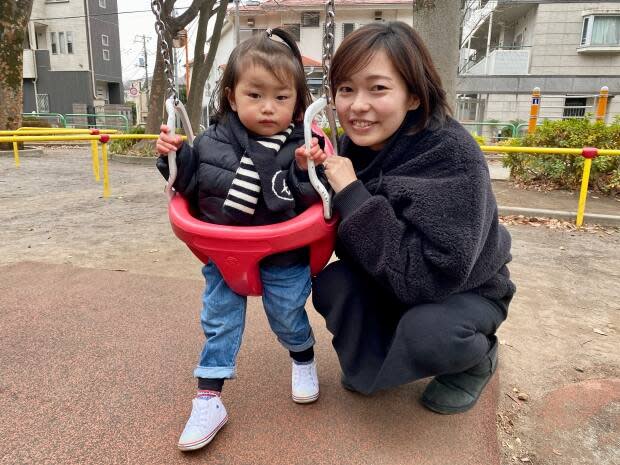
"My husband is from outside of Tokyo, but because of his job, it's hard to move," said Kurokata, a hospital worker and mother of a toddler.
"His headquarters are in Tokyo. It's not realistic for us to live outside the city."
Japan's demographic crisis hitting harder outside Tokyo
Drawing families out of this sprawling metropolis has proven to be a daunting challenge for successive governments.
The United Nations ranks the Tokyo area as the world's largest urban agglomeration, with more than 37 million people living in the city and three surrounding prefectures.
About 30 per cent of Japan's population lives in the Greater Tokyo Area. By comparison, roughly 15 per cent of Canadians call the Greater Toronto Area home.
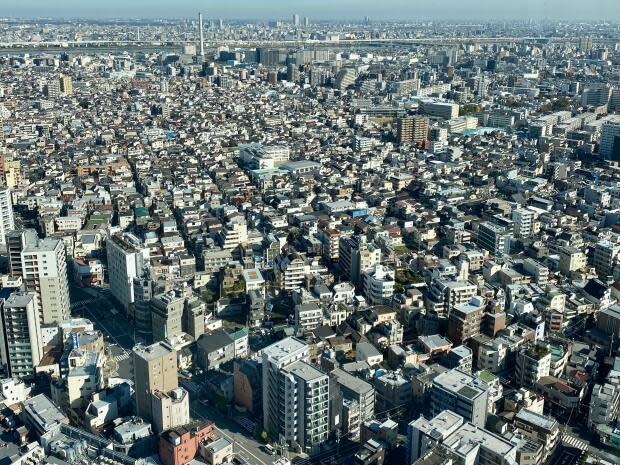
This super-density poses significant concerns, including the potential impact of a large earthquake, which is predicted to hit Tokyo within the next three decades.
But a vexing social issue continues to shake the rest of Japan — the exodus of young people from the country's less "cool" regional cities and rural areas to Tokyo, long seen as the centre of the universe for Japanese business, politics and culture.
A demographic crisis is compounding the problem.
The country's overall population, one of the world's oldest, recorded its biggest-ever natural decline in 2021, as the birth rate reached a record low and immigration remained tightly restricted.
Cities and towns in Japan's countryside are aging and shrinking the fastest, which is depleting their tax base, shuttering schools and leaving many municipalities on the brink of extinction.
Migration subsidy not the 'solution'
The incentive program started in 2019, and initially offered families in Greater Tokyo about $3,000 per child to move to any of about 1,300 participating municipalities, which are on the hook for half the cost, according to Kyodo News.
It had limited effect, with 2,381 people taking advantage of the subsidy in 2021.
Analysts like Keisuke Kondo believe the offer won't lead to wider change on its own.
"A migration subsidy should not be the main policy for regional revitalization or a solution for population decline," said Kondo, a senior fellow at the Research Institute of Economy, Trade and Industry, who has evaluated the incentive program.
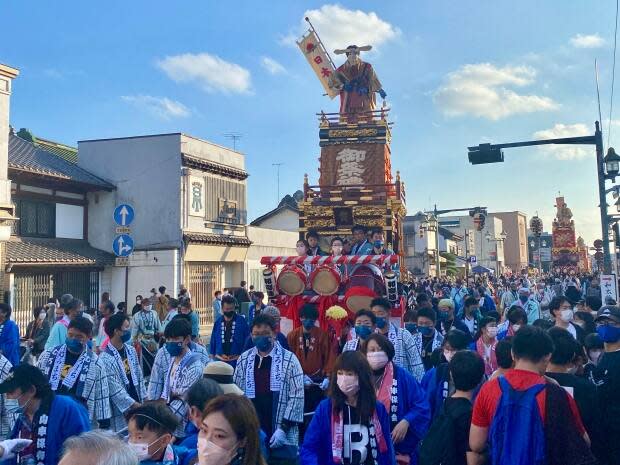
Kondo says Japan's traditionally rigid employment structure, which forces people to commute on packed trains to and from offices in Tokyo, is a major limiting factor.
"If companies offer a new, flexible system [e.g. allowing more people to do remote work], workers will react and decide to move out of Tokyo," said Kondo.
He thinks the boosted subsidy could attract some families with parents who are able to work from home and want to relocate to a new city with lower living costs or easier access to parks and nature.
Jobs are key, depopulation expert says
The government's current goal seems like a drop in the bucket in the grand scheme of things: It wants 10,000 people per year to take the cash and leave the Tokyo region.
Anthropologist John Mock thinks the subsidy has "good intentions," but he says the impact of moving a few thousand families out of an urban area with tens of millions of residents is not a prudent fix.
Mock believes the government has "put the cart before the horse" with the incentive, which he says is an insufficient amount of money considering the cost of moving with a family, and the difficulty of making a livelihood in rural parts of Japan, where incomes are lower and employment is harder to find.
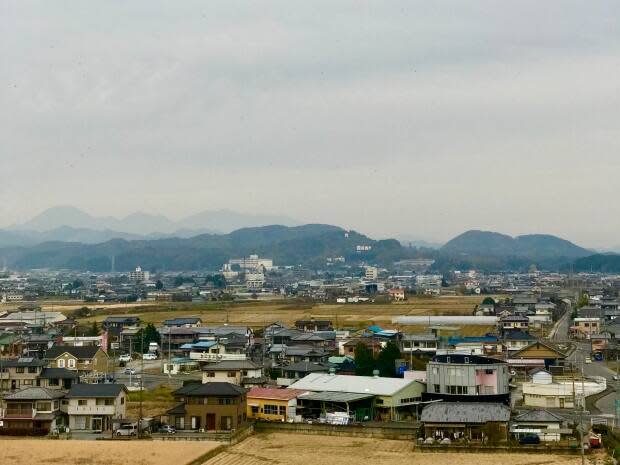
"If [governments] wanted to actually go after this, it seems to me you'd have to do some very serious things about, for example, child care, urban development, getting jobs," said Mock, an adjunct professor at Temple University Japan who has written about depopulation during his 35 years in the country.
"Families are going to move if they can find a job," he said.
Small signs of a shift
Even without the boosted subsidy, some groups say they've been seeing small signs of momentum.
The non-profit organization Hometown Relocation Support Centre, which links urbanites with local governments, received a record 52,312 inquiries in 2022.
"Over the last 10 years, the majority of people who want to leave Tokyo are in their 20s to 40s," said Hiroshi Takahashi, the group's chair. "Living in Tokyo and working for a big company is not everyone's dream anymore."
The trend is also reflected in government data from 2020 and 2021, which revealed that for the first time, fewer people moved into Tokyo than moved out.
Some experts attribute it to an increase in remote work during the pandemic.
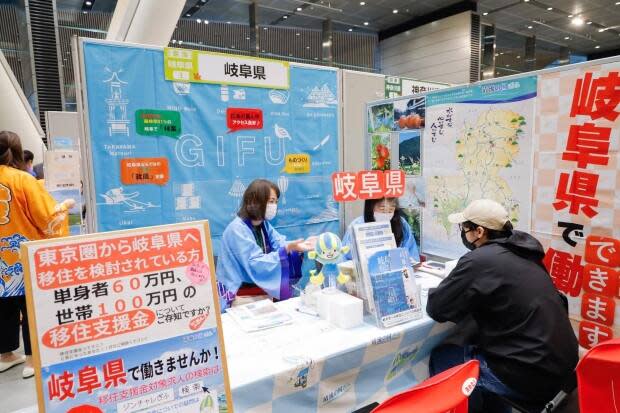
Others see it as part of a global shift, as people re-evaluate the potential advantages of living in smaller communities, like cheaper housing and a slower pace of life.
"I think it's a kind of reflection of changing values," said Susanne Klien, an ethnographer and associate professor at Hokkaido University, who interviewed 118 people for her book Urban Migrants in Rural Japan.
Klien is optimistic that Japan's countryside will become "experimental grounds for people" who choose to move, because the lower cost of living can "give them a chance to do what they would like to try," especially with fewer life-long jobs available in Japan.
"There's a lot of space in rural areas, and a lot of time because you don't have to work so much," said Klien, who does not expect to see an explosion of urbanites ditching Tokyo, but rather a slow outflow.


